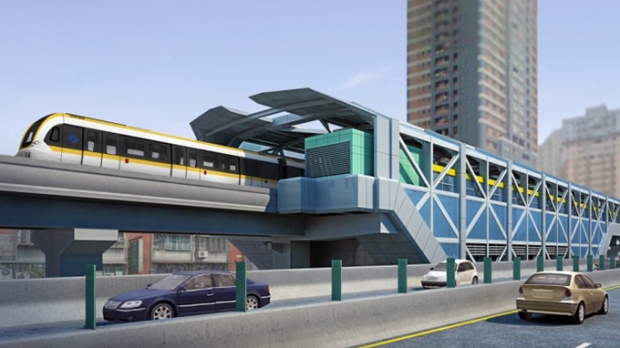COLOMBO – President Gotabaya Rajapaksa has directed Sri Lanka’s Ministry of Transport to terminate a Japan International Cooperation Agency (JICA)-funded light railway transit (LRT) project with immediate effect.
In a letter to the ministry secretary, Secretary to the President, P. B. Jayasundara, said the project was “very costly and not the appropriate cost effective transport solution for the urban Colombo transportation infrastructure.”
“A suitable transport solution could be worked out in consultation with the Ministry of Urban Development and Housing and the Department of National Planning of the Ministry of Finance,” Jayasundara wrote, adding that the president had also ordered the immediate closure of the project office.
In June this year, Sri Lanka halted the same LRT project, anticipating high costs and low returns. The project was expected to solve the traffic problem in the key Colombo to Malabe corridor and several other corridors in other stages.
“The project was not halted by Japan but the government of Sri Lanka,” Minister Bandula Gunewardene told reporters in Colombo at the time.
Sri Lanka signed a 30 billion yen concessionary loan with the government of Japan in March 2020 for the projects. The government also expressed concern about buildings that might be affected by the LRT.
However, JAICA at the time said by building the LRT on towers – as is done in other built-up cities – disruptions would be minimized. In built-up cities, urban transit systems are either built on towers or underground.
Minister Gunewardene claimed the project would be awarded to a Chinese company at a 6% interest rate compared to a lower rate by Japan, giving rise to speculations that the move was made by those who would stand to benefit from the light rail project.
After cancelling the Japanese soft-loan project, Sri Lanka announced plans to request proposals to fund a US$ 2.2 billion light rail transit project that would involve up to 2.0 billion dollars of related investments.
Sri Lanka was reported to be preparing documents to request proposals from international investors to build the LRT, which was designed to run from Colombo’s Fort area to fast growing suburbs in Malabe and Athurugiriya, via the administrative capital of Sri Jayewardenepura.
There were concerns that halting rail projects, which have solved traffic problems and made urban transit from Bangkok to Delhi more efficient, would have long term negative fallout in urban pollution and productivity.
-economynext.com


